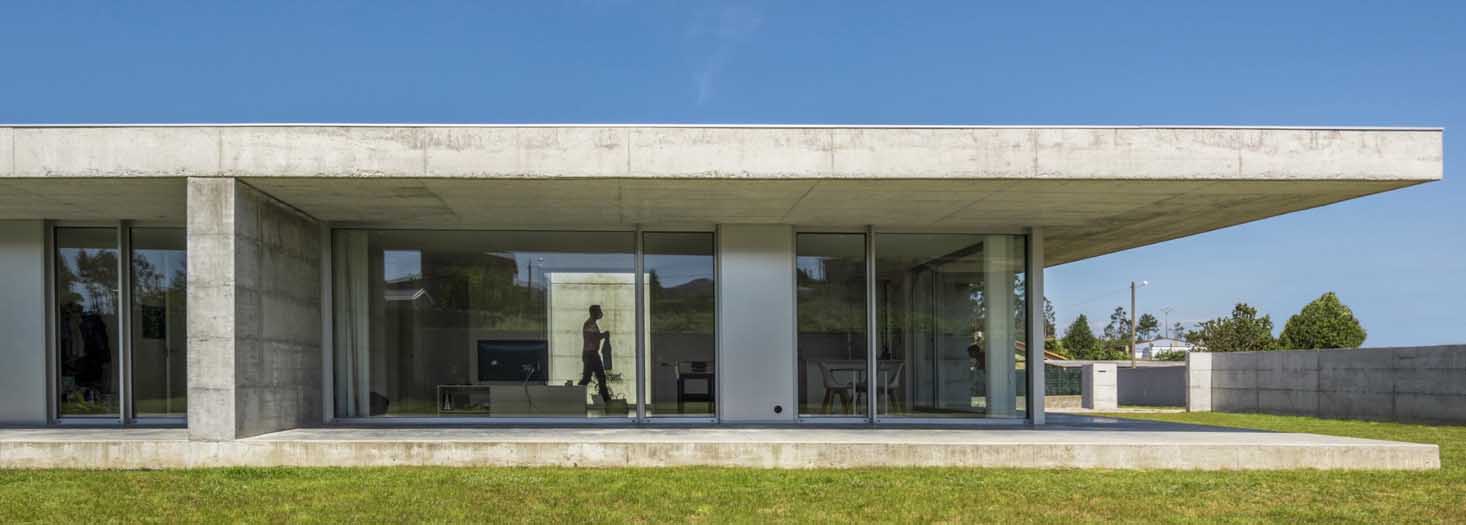Graduates meeting the conditions set in Order EDU/2075/2010 of 29th July, regarding the requirements for the verification of university studies enabling professional practice as an architect.
Jordi Martínez Ventura
Lola Bataller Alberola
Check the tuition fees for this Master's programme. The San Pablo CEU University Foundation is the educational institution in Spain that allocates the most funding to scholarships and financial aid. For both Official Master's Degrees and Lifelong Learning Master's Degrees, you may be eligible for the AVANCE Scholarship.
Specialization and internationalization
What makes us different
Become an architect in Spain and work wherever you want.
This Master's Degree in Architecture enables you to work as a professional architect in Spain and across Europe. The aim of the programme is to give students the opportunity to add to the skills and knowledge acquired as apart of the Bachelor's Degree in Architecture (Grado en Fundamentos de Arquitectura), exploring architectural projects in greater depth from an experimental viewpoint, while providing a solid and multidisciplinary grasp of the field.
The Master's Degree in Architecture enables you to practise as an architect, access doctoral programmes, possess a professional qualification which improves your employability, and ensure full recognition of your professional qualifications abroad.
If you are already a student at our university, you can enrol in the Programa Académico de Recorrido Sucesivo (PARS), where we offer you the opportunity to complete both the Bachelor's Degree and the Master's Degree in Architecture in a continuous manner. It will allow you to enrol in the master's degree when you have a maximum of 30 ECTS credits to complete, all of them corresponding to the last year, including the Final Degree Project (TFG).
If you are an international student, you may access the master's with an undergraduate degree in Architecture that qualifies you for a master's in the country where it was issued. To sign off on your own projects in Spain, you will need to apply for the official recognition (homologation) of your foreign degree as equivalent to the Spanish Bachelor's Degree in Architecture.
In any case, and even if you are not interested in obtaining the indicated homologation, the master's provides a recognised qualification that will boost not only your skills but also your employability in any architecture practice.
Destination: Spain
A focus on Spain and Spanish architecture in an international environment
Spanish architecture rightly enjoys great prestige throughout the world. For this reason, this final year of training will concern gaining first-hand knowledge of the country's architecture, by studying it, visiting it and getting to know some of the studios which are playing a key role in shaping it today. Each year, a different studio works closely with our students, who will also be able to visit their facilities. Students will work on a project and will be guided by the studio's staff throughout.
All of this work will take place in an international environment, with students from a range of different countries - people who could soon become your international partners. And all teaching activities will be in English.
With Carles Enrich Studio
In the CEU Master's Degree in Architecture, we collaborate each year with an internationally renowned architecture studio.
Throughout the 2025-26 academic year, we will be working in collaboration with Carles Enrich Studio, an architectural practice based in Barcelona that works at different scales in the fields of architecture, urban design, and landscape, with an across-the-board focus and a meticulous diagnosis of pre-existing conditions.
The studio, led by Carles Enrich, combines research, technical exploration, and a commitment to exceed expectations, delivering rigorous and site-sensitive architectural interventions.
Carles Enrich Studio has received numerous accolades, including nominations for the EU Mies Award in 2017 and 2019; first prize at the XIII and XIV Spanish Biennial of Architecture and Urbanism in 2016 and 2018; the FAD Opinion Award in 2016; the AJAC Awards in 2012, 2016, and 2018; as well as participation in the Venice Architecture Biennale in 2012 and 2016.
This collaboration allows students to connect theoretical learning with professional practice and understand what you need to study to become an architect today: technical knowledge, critical thinking, environmental awareness, and material innovation.
High-quality education + real professional experience
See the line between the academic and the professional worlds disappear
Improve your skills, your employment prospects, and your ability to work as part of a team, and gain a global vision of architectural practice via the different types of placement we can offer you: voluntary placements, Erasmus+ traineeships and internal scholarships.
All teaching activities on the degree are also scheduled for the late afternoon and evening, on a maximum of four days a week, so that you can combine a professional placement with your studies.
At the same time, you will be developing your own project, with the support of an expert professional team throughout the process. Now is the time to intensify your learning and give your career a boost before it even starts. All of the degree content has a practical focus and aims to be directly applicable to professional practice.
Some of the best architects currently practising will be your lecturers, enabling you to network even as you learn.
In the laboratory
Learn by doing
The whole programme seeks to immerse you in real architectural problems, so that you can learn through real experience: practical workshops, challenges, travel and study visits, debates, etc. Now is the time to experiment, discover, make mistakes, choose, and experience new things. It will all take place in a laboratory - and the clue is in the name. It is a place for teamwork, experimentation, questioning assumptions and the production - and then the perfection - of prototypes.
In this shared laboratory, you will have your own workspace within the team area at our design and architecture school, ESET.
The core of the whole programme is a professional project which you will undertake, enabling you to bring together everything you have learnt during your studies and show that you are ready to begin your architectural career. An expert team will guide you the process so that you can produce the best possible project.
And the rest of the study programme will strengthen your practical and skills, enhancing your project still further. As the Spanish architect Alejandro de la Sota said, "architecture is the air we breathe, but it is one which is laden with aromas and wisdom, and the air itself is transformed through architecture."
What are the entry requirements?
To enrol in the programme, you must hold a Spanish Bachelor's Degree in Fundamentals of Architecture or an equivalent qualification that grants access to a master's degree in the country where it was issued. Additionally, a B2 level of English or higher is required. If you do not have an official English certificate, you can demonstrate your proficiency through a test administered by our university.
If you are already a student at our university, you can enrol in the Programa Académico de Recorrido Sucesivo (PARS). This programme allows you to progress seamlessly from the Bachelor's Degree in Fundamentals of Architecture to the Master's Degree in Architecture. You may register for the master's when you have a maximum of 30 ECTS credits left to complete your degree, all of which must correspond to the final year, including the Final Degree Project (TFG).
What is the minimum information I need to submit during the admission process?
To assess your application, you must submit at least the following documents:
- Motivation letter
- CV and portfolio
- Diploma
- Academic transcript
- English proficiency certificate (if available)
- Official photo ID
If your degree was not awarded in Spain, you must also provide the European Diploma Supplement or an equivalent document confirming that your studies grant access to a master's degree in the country where it was issued.
Boost your employability with Microcredentials
Pursuing a postgraduate programme is a great way to advance your career, but it is your skills that will truly give you the edge in the highly competitive job market.
At CEU UCH, a postgraduate programme will provide you with a solid academic and specialized education. But you will also have the chance to develop a key set of highly-valued personal and professional skills and to get them certified in the form of microcredentials. Developing and gaining recognition for your skills will enable you to stand out and demonstrate the added value you can bring to todays demanding employers.
All our official master's degrees offer transversal micro-credentials. In addition, in some of our postgraduate programmes you can take micro-credentials specific to the degree you are studying.
What is an Official or University Master's Degree?
Official (or university) master's degrees are verified by ANECA (National Agency for Quality Assessment and Accreditation) and accredited by AVAP (Valencian Agency for Assessment and Foresight). Unlike proprietary degrees, which are verified solely by the university, official master's degrees undergo external accreditation.
As an official qualification, it is recognised and valid across all European Higher Education Area (EHEA) countries.
Provides access to doctoral programmes.
Awards points for public administration competitive exams and selection processes, whereas proprietary degrees are recognised as continuing education. In the corporate sector, both qualifications hold equal value.

{{anyo.num_curso}} Year
| Subject | ects | type | sem | language |
|---|---|---|---|---|
| {{asignatura.nombre}} {{asignatura.nombre}} | {{asignatura.ects}} | {{asignatura.tipo}} | {{asignatura.sem}} | {{asignatura.idioma.replace("Inglés","English")}} |
| TOTAL ECTS | {{sumCreditos(anyo.materia)}} |
{{value[0].tituloAnexoIng}}
| Subject | ects | type | sem | language |
|---|---|---|---|---|
| {{asignatura.nombre}} {{asignatura.nombre}} | {{asignatura.ects}} | {{asignatura.tipo}} | {{asignatura.sem}} | {{asignatura.idioma.replace("Inglés","English")}} |
End-of-Master's Degree Project
For the End-of-Master’s Degree Project, or TFM, students must undertake a project or research study which draws on and examines different explanations, theories, and ideas with regard to a specific issue. By doing so, students will learn how to plan a process, to apply research principles and skills (literature searches, data analysis and interpretation, etc.), to engage in problem-solving in an autonomous manner and to communicate and defend their point of view efficiently and professionally.
Regulations
-
 {{archivo.titulo}}PDF
{{archivo.titulo}}PDF
* Subject not offered in the current academic year. The syllabus content for this course is not available.
Professors
-
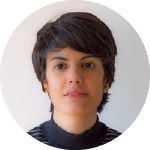 María Albarreal Machío
María Albarreal Machío -
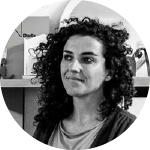 Lola Bataller Alberola
Lola Bataller Alberola -
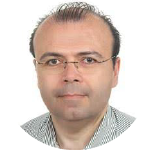 César Blecua Udías
César Blecua Udías -
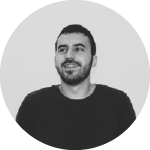 Raúl Ferrándiz López Estructuras Singulares
Raúl Ferrándiz López Estructuras Singulares -
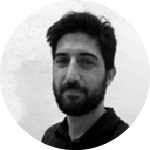 Javier García García Drawfield
Javier García García Drawfield -
 Lara Llop Font
Lara Llop Font -
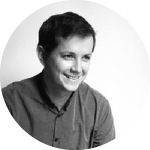 Ángel López de Ocáriz Olmos Drawfield
Ángel López de Ocáriz Olmos Drawfield -
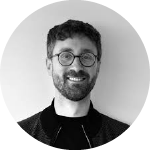 Jordi Martínez Ventura
Jordi Martínez Ventura -
 Blanca Pedrola Vidal Kuma Architecture
Blanca Pedrola Vidal Kuma Architecture -
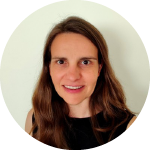 Maria Peralta Zaragoza
Maria Peralta Zaragoza -
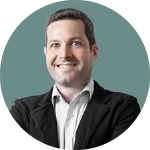 Jaime Pérez Dinnbier
Jaime Pérez Dinnbier -
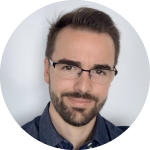 José María Rodrigo Ortega
José María Rodrigo Ortega -
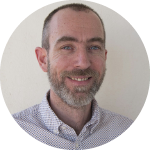 Alfonso Ventura Martínez
Alfonso Ventura Martínez -
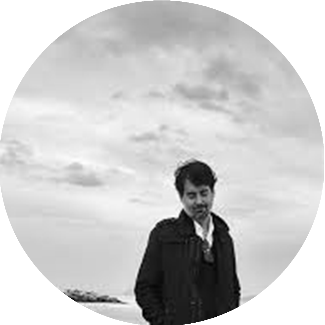 Juan Miguel Martínez López
Juan Miguel Martínez López -
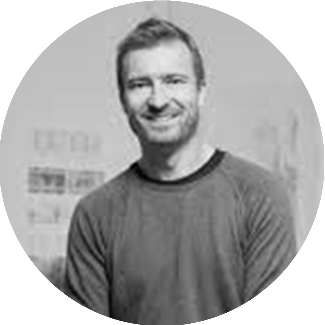 Carles Enrich
Carles Enrich

A postgraduate placement – the first step towards your dream career
Many students see postgraduate training as the key to improving their employability – and this is exactly what you can do with us. Placements at working studios, training to improve personal skills, and lecturers who also work in the industry are all part of the package we offer.
Want to know more? >>Mandatory Internships
 General regulations concerning the practicum in Bachelor's Degrees and postgraduate programsPDF
General regulations concerning the practicum in Bachelor's Degrees and postgraduate programsPDF
Voluntary placements
During your Master's Degree in Architecture at ESET, you can undertake voluntary placements at Spanish and international studios and firms. Our objective is to ensure you can maximize your learning, by combining your studies with real professional experience, enabling you to hone your skills and employability, improve your teamworking ability and gain a global vision of professional practice.
The chance to gain experience at international studios is a unique opportunity, as you can gain a more comprehensive perspective on the profession while improving your cultural awareness and language skills - enhancing your international career prospects significantly.
There are different types of placement you can undertake: voluntary placements, Erasmus+ traineeships and internal scholarships. All of these can be combined with your studies and can act as a bridge between the academic and professional worlds. And to make it easier for you to enjoy the full benefits of both your academic education and your professional training, lectures are scheduled for the later afternoon and evening, on a maximum of four days a week.
Leading Companies
More information
Mireia Burdeus Nadal
Careers Officer – Postgraduate Administration Unit
Training Testimonial
- Start date: October 12, 2026
- End date: July
- Schedule: afternoons (except on days when the guest studio visits us, once a month, during the four intensive workshops, which take place over two or three days in both the morning and afternoon)
As an extra activity, during the first month we will go on a trip to visit the works of the guest studio, as well as the plot and the city where the project is located. In the 2025-2026 academic year, we will explore the architecture of Carles Enrich Studio and discover Barcelona and its surroundings.
Schedule
 Schedules 2025/26LINK
Schedules 2025/26LINK
Memory and reports

This section contains all the official information regarding the verification, implementation and renewal of verification of the study programme. + info
memory
-
 University Verification Report for the Master's Degree in ArchitecturePDF
University Verification Report for the Master's Degree in ArchitecturePDF -
 Link to the Registry of Universities, Institutions and Qualifications (RUCT) regarding the Master's Degree in ArchitectureWEB
Link to the Registry of Universities, Institutions and Qualifications (RUCT) regarding the Master's Degree in ArchitectureWEB -
 Academic Program Memory of Successive Route (PARS) in Architecture via Fundamentals of ArchitecturePDF
Academic Program Memory of Successive Route (PARS) in Architecture via Fundamentals of ArchitecturePDF
aneca reports
implementation report
 {{implan.titulo}}PDF
{{implan.titulo}}PDF
renewal report
 {{renov.titulo}}PDF
{{renov.titulo}}PDF
Survey results
Surveys are carried out to gauge the satisfaction of different groups with the degree, and the resultant reports enable the programme’s main strengths and weaknesses to be identified. Together with other indicators, this can form the basis for improvement plans. + info
Monitoring
Three years after their launch or reaccreditation, all degrees are evaluated by AVAP. The aim is to ensure that the programme is being carried out in accordance with the officially approved curriculum. + info
The quality objectives of the Master's Degree in Architecture are under permanent monitoring and review. To this end:
- An internal monitoring report (ISI) is drawn up every year, on the basis of the indicators and evidence from the Internal Quality Assurance System (SAIC, its Spanish abbreviation). The report provides an analysis of the degree’s operations, makes proposals for improvement, and monitors results and progress.
Monitoring reports
Suggestion mailbox
Operating rules:
- All members of the university community and different stakeholders may submit suggestions, complaints, claims, or compliments.
- Suggestions, complaints, claims, or compliments may be submitted individually or as a group.
- To submit a suggestion, complaint, claim, or compliment, it is necessary to provide the personal information requested in the corresponding form; otherwise, it will not be processed.
- The mailbox can be accessed directly from the website. It operates via email, so the user will receive a response at the email address provided as the sender.
- The Strategic Development and Quality Unit will forward the received suggestions, complaints, claims, or compliments to the responsible parties in the relevant Areas, Departments, or Programs and will send their responses to the sender.
- The Strategic Development and Quality Unit only acts as a liaison, as it does not have executive capacity.
- The mailbox is public, but the identity of the senders and the documents submitted are not; only the Strategic Development and Quality Unit will have access to them.
|
In accordance with Regulation (EU) 2016/679 of the European Parliament and of the Council of April 27, 2016, on the protection of natural persons with regard to the processing of personal data and on the free movement of such data, and repealing Directive 95/46/EC, we inform you that your data will be processed under the responsibility of the SAN PABLO CEU UNIVERSITY FOUNDATION (hereinafter, FUSP-CEU), in order to handle your information request, as well as to keep you informed about initiatives and events that may be of interest to you in the educational field or help us better understand your training needs. We also inform you that profiling is planned to understand which products or services may suit you best, and how to communicate them to you most effectively, according to your preferences or habits, and that are offered by our foundation or related entities (*). FUSP-CEU informs that the indicated processing is legitimized by the consent of the data subjects or, where appropriate, their legal representatives. Likewise, FUSP-CEU informs you that the personal data included in this request for information will be retained unless you request their deletion. By signing this request, you expressly consent to the communication of your personal data by FUSP-CEU to Foundations, Institutions, and Centers, dependent on or linked to FUSP-CEU (*), for their own management purposes and to keep you informed about their activities and projects. We inform you that international data transfers are not planned. You may contact the FUSP-CEU Data Protection Officer by writing to the postal address C/ Tutor nº 35 - 28008 Madrid or via email at [email protected]. In accordance with the rights conferred by current data protection regulations, you may contact the competent Supervisory Authority to file a complaint, and you may also exercise your rights of access, rectification, restriction of processing, deletion, data portability, and opposition, as well as withdraw your consent, by sending your request to FUSP-CEU General Secretariat, C/ Tutor nº 35, 5th floor - 28008 Madrid, or via email at [email protected]. *Institutions, dependent Centers and CEU Foundations: Fundación Privada Universidad Abat Oliba CEU, Fundación San Pablo Andalucía, Fundación San Pablo Castilla y León, Fundación San Pablo Sanchinarro, Fundación Abat Oliba, Fundación San Pablo para Ayuda al Estudio, Colegio Mayor Universitario de San Pablo, Fundación Cultural Ángel Herrera Oria and Asociación Católica de Propagandistas. |
Regulations
- Regulations for the Continuation of Studies on Master's Degrees
- Royal Decree 822/2021, of 28th September, regarding the organization of educational programmes at universities and the quality assurance of such programmes
- Regulations Concerning University-Specific and Lifelong Learning Programmes
- Regulations on the Recognition and Transfer of Credits
- Contract for the Waiving of Intellectual Property Rights
- Regulations Concerning Continuous Assessment at CEU UCH.
- General Regulations Concerning End-Of-Degree Projects (TFG) and End-Of-Master’s Degree Projects (TFM).
- Framework Regulations for the External Practical Training of University Students
View all the CEU Cardenal Herrera University regulations here
More Information
|
All the University’s degree programmes are assessed by the Spanish government’s quality assurance agency for higher education, ANECA. The University draws up a report (memoria) containing all the information concerning a new degree it wishes to offer and sends this to ANECA for it to review and approve. This approval process for the degree programme culminates with it being placed on the official record of universities and degrees in Spain, known as RUCT, with this being last step prior to its ratification by the governmental body responsible for coordination with Universities, the Consejo de Universidades. ANECA, in turn, sends back a final report (informe final) recording the approval or “verification” of the degree, and may also send further approval reports (informes de aprobación) for each modification that the University makes to the initial memoria for the degree. The implementation report (informe de implementación) is issued by the quality assurance agency in higher education of the Valencian regional government, AVAP. A favourable implementation report is essential for the Consejo de Universidades to approve the provision of the degree programme. Either six or eight years after a degree begins operation (depending on its duration), it must undergo a further round of external assessment in order to renew its verified status. This assessment is undertaken by AVAP. If successful, a renewal report (informe de renovación) is issued. |
|
The University undertakes a range of surveys to acquire stakeholder feedback regarding its degrees. The following are undertaken annually:
The following are undertaken every two years:
The results are indicators for the Internal Quality Assurance System (SAIC) and are studied by the internal monitoring committee (CSI) for the degree. Improvements may then be suggested in the internal monitoring report (ISI) for the degree. |
|
The degree is subject to two monitoring processes:
|
Ready to apply?
Our admission process is simple and easy, and with many resources to make your application as smooth as possible.
Access your intranet to submit documents, find useful information and check your application status from home!
|
|
General
Specific competencies - technical module
Specific competencies - module with practical training
Specific skills - End-of-Master’s Degree Project Module
|
ConstructionDrafting of projects and site management for construction work of all types, including:
Urban planningCreation of all types of urban planning materials and detailed projects; in particular:
Other work:
|
|
|


